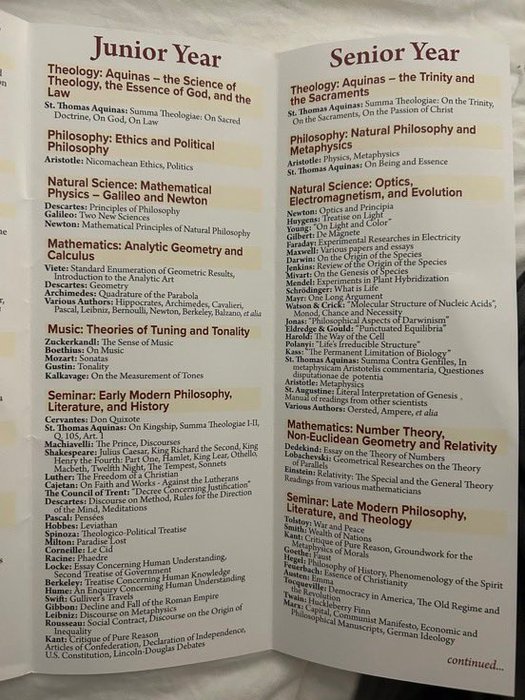Sublime
An inspiration engine for ideas
The medievals well knew their own maxim that “the argument from authority is the weakest of all arguments” (see S.T. I, i, 8, obj. 2). But they also believed in doing their homework and in learning from their ancestors—two habits we would do well to cultivate today.
Peter Kreeft • Summa of The Summa: The Essential Philosophical Passages of St. Thomas Aquinas' Summa Theologica
Descartes Third Meditation (The Age of Reason 15)
youtube.com
Never did he allow the meannesses of human respect to degrade his Christian dignity.
de Lisieux Thérèse • The Story of a Soul (L'Histoire d'une Âme): The Autobiography of St. Thérèse of Lisieux With Additional Writings and Sayings of St. Thérèse
For matter, such as it is, is in potentiality.
Saint Thomas Aquinas • The Summa Contra Gentiles (Illustrated)
Whosoever therefore shall break one of these least commandments, and shall teach men so, he shall be called the least in the kingdom of heaven. but whosoever shall do and teach them, the same shall be called great in the kingdom of heaven.
Thomas Jefferson • The Jefferson Bible
He was one of those to whom nature has given the desire without the power of artistic expression.
G. K. Chesterton • The G. K. Chesterton Collection [50 Books]


There is little of the true philosophic spirit in Aquinas. He does not, like the Platonic Socrates, set out to follow wherever the argument may lead. He is not engaged in an inquiry, the result of which it is impossible to know in advance. Before he begins to philosophize, he already knows the truth; it is declared in the Catholic faith. If he can
... See more